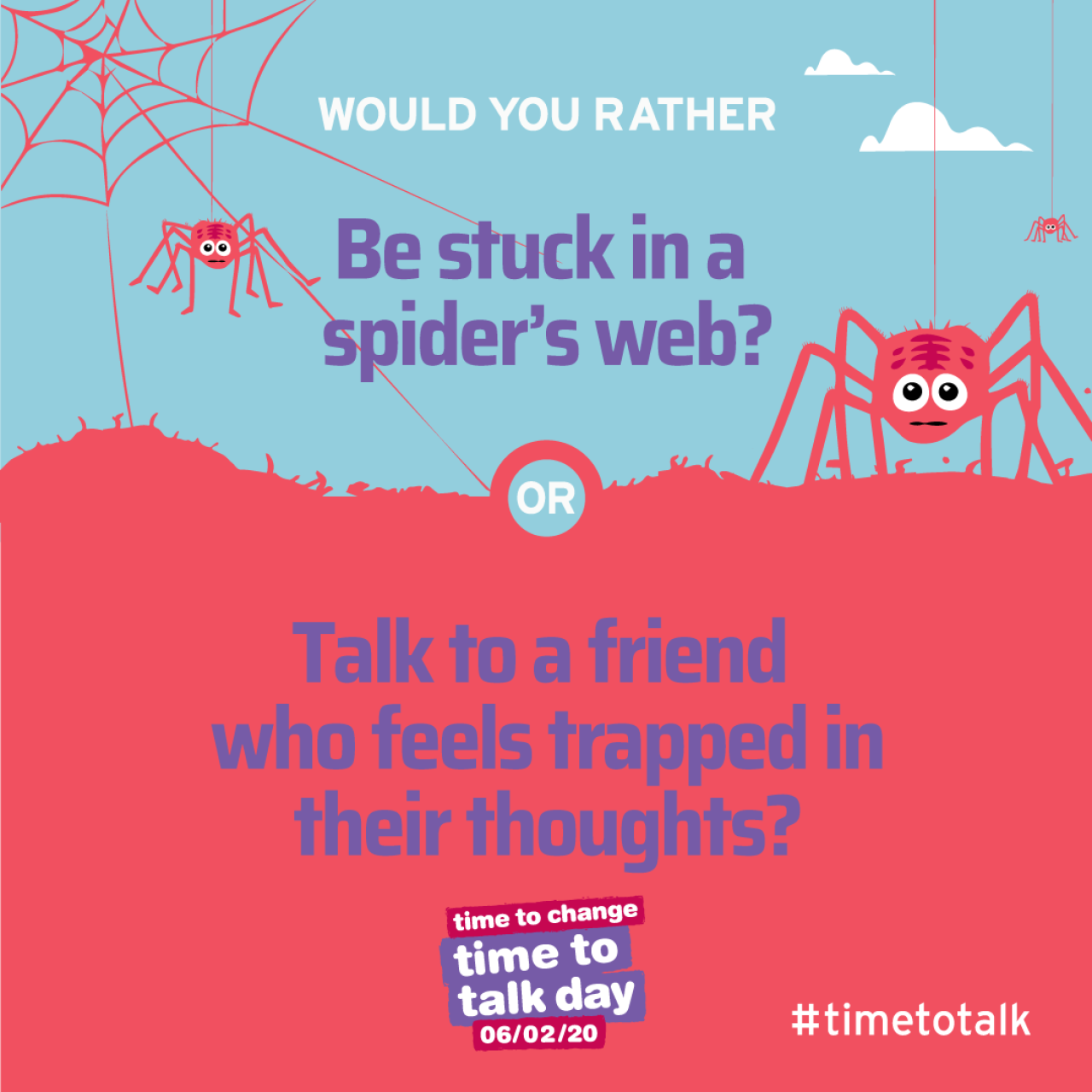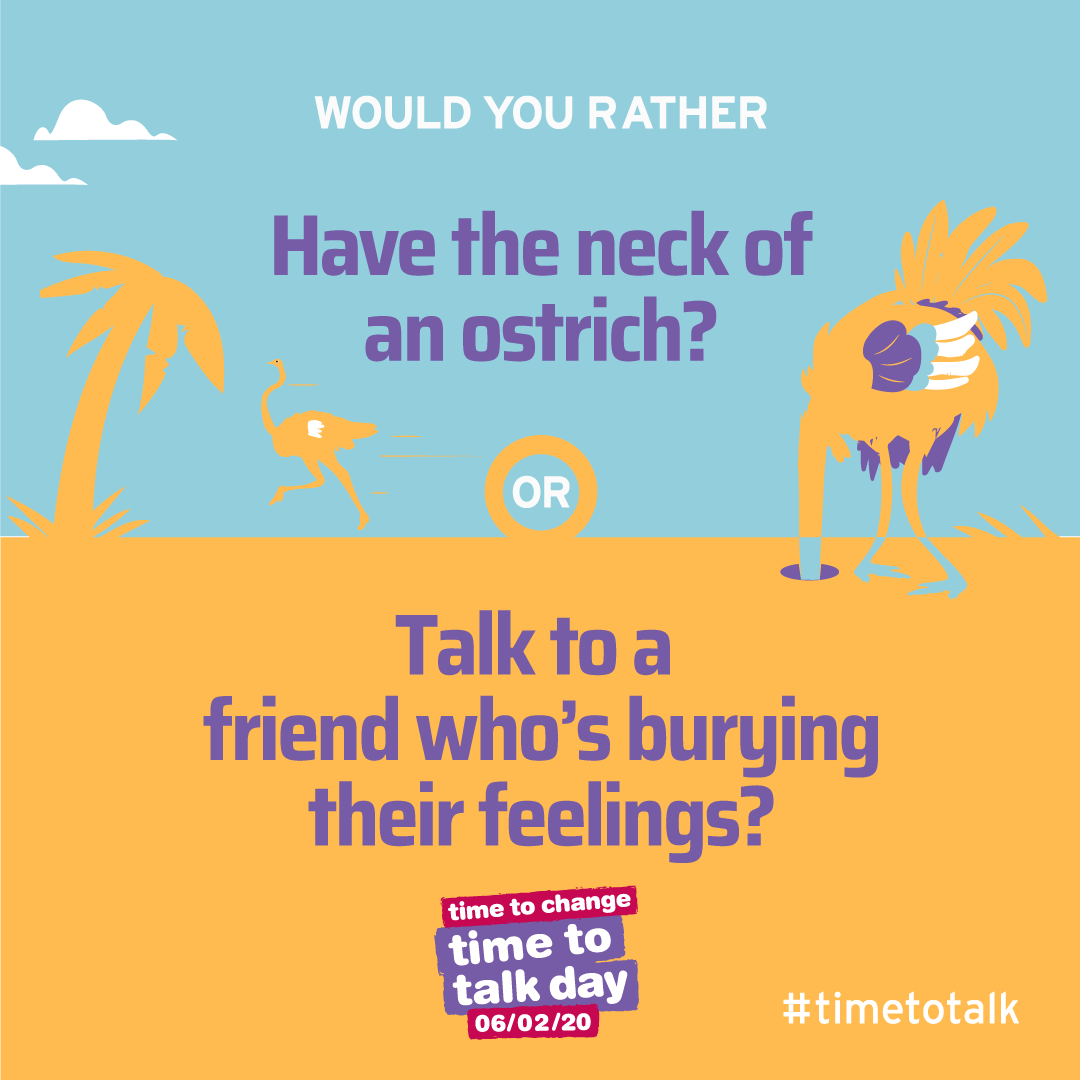Written by Jed Winstanley, Honorary Research Assistant at the CARMS Project
Hi, welcome back to the official blog site for the CARMS Project (Cognitive AppRoaches to coMbatting Suicidality)!
As we wave goodbye to the first month in a new year and decade we are greeted by the annual ‘Time to Talk Day’ on Thursday 6th February. For those of you unfamiliar with this event, it is a campaign established by the charity Time to Change that aims to ‘encourage everyone to be more open about mental health – to talk, to listen, to change lives’.
I am all for initiatives that lead to improvements in public attitudes and behaviour towards people experiencing mental health problems but large-scale campaigns run the risk of excluding those who experience lesser known mental health problems. Many people still find talking about suicidality difficult but I believe we should be able to talk about suicide as openly as we would talk about any other mental health problem. In this article I aim to debunk some of the common myths associated with suicidality in the hope of encouraging everyone to be more open about suicidality – to talk, to listen, to change lives.

MYTH: If someone is feeling suicidal then there is nothing you can do because they are determined to die.
FACT: Feeling suicidal is often temporary and situation-specific, even if the person has been struggling for a long period of time. Oftentimes those who experience suicidality do not actually want to die – they want to escape from the life they are currently living and feel that there is no other option. This is why receiving emotional support at the right time is crucial.
MYTH: Talking to someone about suicide is bad because it may encourage the person to do it.
FACT: I have to hold my hands up here and admit this was a fear of mine up until having the opportunity to talk with many people with lived experience of suicidality and delving more into suicidality as a topic. In actual fact, being direct and asking someone about suicide gives them permission to be open and honest with how they are truly feeling. This then provides the person with an opportunity to rethink the decision to end their life, realise other options and seek help.
MYTH: Only people with mental health problems experience suicidality.
FACT: On a personal level, I have met many people with mental health problems that are not affected by suicidality. Furthermore, not all people who die by suicide have mental health problems at the time they die and according to the Samaritans 1 in 5 people report experiencing suicidal ideation at some point in their life.
MYTH: People who talk about suicide aren’t serious, they are simply seeking attention and won’t actually do it.
FACT: Many deaths by suicide are preceded by verbal or behavioural warning signs over a period of time. It is for this reason that all efforts to discuss suicidality should be taken seriously – before it becomes too late.

MYTH: Suicide only happens to other people.
FACT: The reality of this myth is something that I find troubling. The reality is that suicidality does not discriminate. It can happen to anyone at any time. This is why we need to break the taboo surrounding suicidality and talk more about suicide. A simple conversation could save a life.
If you would like some more guidance on how to talk about suicidality the Zero Suicide Alliance run a brilliant free online course that can be accessed here.
* This article contains references to suicide that some people may find distressing so if at any point you require urgent support with your mental health please contact your GP, care coordinator or crisis team. Other help can be found here:
- Phone 116 123
- Email jo@samaritans.org
- Text 07725 90 90 90
- Or visit your local branch
- Online crisis support www.selfhelpservices.org.uk/the-sanctuary
- Phone 0300 003 7029
Rethink (Mon-Fri 9.30AM-4PM):
- Phone 0300 5000 927
Saneline (4.30PM-10.30PM):
- Phone 0300 304 7000
Mind (9AM-6PM):
- Phone 0161 236 8000 (local rates and mobile charges apply)
- Email info@mind.org.uk
- Text 86463
The University of Manchester Counselling Service

